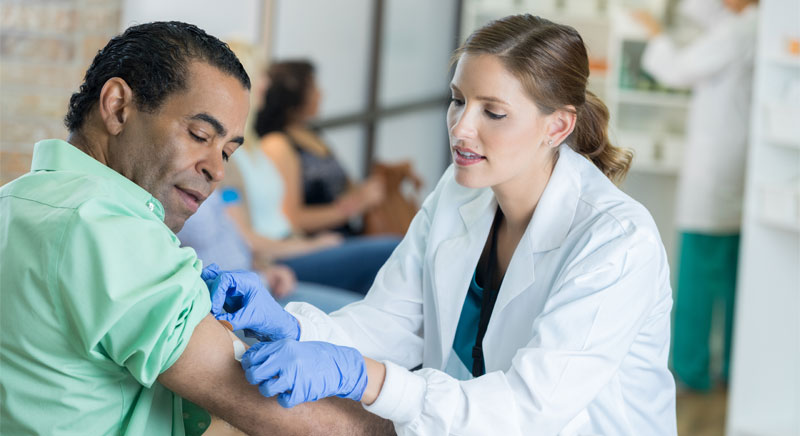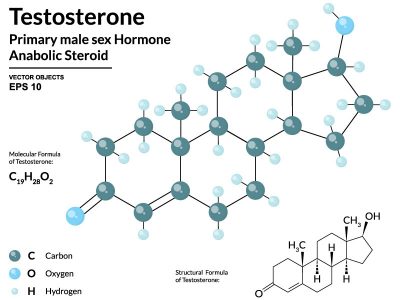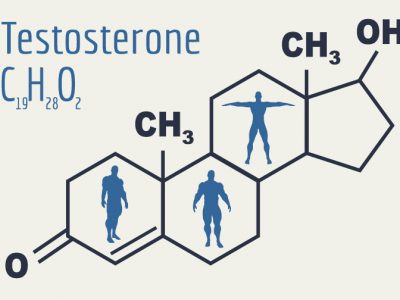- Home
- Growth Hormone
- Growth Hormone
- Growth Hormone Deficiency
- Growth Hormone Therapy
- Growth Hormone Injections
get startedThe Most Effective Hormone Replacement TherapiesOnce You Start Testosterone Therapy, Can You Stop?
- There is a process to safely stopping testosterone therapy.
- You should not, under any circumstances, take testosterone without appropriate medical supervision and regular monitoring, nor to stop “cold turkey.”
- Once you have reached your desired goals, we will help you to use your increased strength, energy and motivation, to help you to keep your testosterone levels where they should be, and maintain the results you have achieved.
You can stop Testosterone Replacement Therapy (TRT) but there is a right way and a wrong way to do so to avoid health issues and adverse side effects. One thing is quite clear: it is not a good idea under any circumstances to take testosterone (T) without appropriate medical supervision or to stop “cold turkey.”
TRT has become a common treatment plan for men experiencing low testosterone levels, particularly as they age. TRT is the standard of care for men who are diagnosed with age-related male hormone decline and who are experiencing symptoms like fatigue, muscle loss, weight gain, and sexual health issues.
Once we have returned your testosterone level to what is optimal for your needs and lifestyle, our staff of professionals will work with you, to safely stop your testosterone therapy, and develop a regimen of fitness, diet and lifestyle changes that will help you to maintain what you have achieved at the end of your testosterone replacement program.
While TRT has many positive benefits, a lot of our patients wonder if and when they can stop taking their TRT shots.
“Can you stop TRT once you start?” The simple answer is yes. TRT is usually not prescribed with the intention of long-term use. You can stop, but testosterone is a powerful hormone. Stopping requires careful planning, proper medical supervision, and awareness of the potential impacts. Stopping suddenly or without appropriate medical guidance can have significant physiological and psychological effects, making it essential to approach stopping TRT with careful thought and consideration.
If you start testosterone injections with Kingsberg Medical after the appropriate period of time, our staff will work with you to safely stop your therapy and develop a regimen of fitness, diet, and lifestyle changes that will help you maintain optimal hormone production.
Stopping Testosterone Therapy
Deciding to discontinue TRT is an individual choice that should be made in consultation with a healthcare provider. The reasons for stopping can vary, from addressing side effects to shifting life priorities, financial considerations, or personal health goals. Whatever the reason, stopping TRT isn’t as simple as just quitting. Many physical factors and emotional issues can come into play. Therefore, gradually tapering off or using medications to stimulate natural testosterone production has been found to be safer than abrupt discontinuation. We will discuss effective tapering programs in a later section.
It is not a good idea under any circumstances to take testosterone without appropriate medical supervision and regular monitoring, nor to stop “cold turkey.”
What Happens if You Stop Testosterone Therapy Abruptly (Cold Turkey)?
Stopping your therapy cold turkey, and not as part of your normal therapy plan, can lead to a rapid and often intense response in the body. With the sudden lack of the external supply of hormones, your body may experience a "testosterone crash." This is because your natural production likely was suppressed during therapy. Symptoms of a crash can include fatigue, mood swings, decreased libido, loss of mental clarity, and a loss of muscle mass, among other effects. TRT withdrawal symptoms might also increase cortisol levels (the body’s stress hormone), which can lead to further health issues if left unaddressed. Because of potential withdrawal issues, cold turkey cessation is rarely recommended due to these potential consequences.
How to Safely Stop Testosterone Therapy
If you’re considering stopping TRT, doing so under a doctor’s guidance is essential for a safe and effective transition. Gradual tapering is one of the best ways to prevent a sudden drop in hormone levels. During tapering, your healthcare provider may recommend medications such as clomiphene or hCG (human chorionic gonadotropin) to stimulate increased natural androgen production. The aim of tapering is to let the body adjust incrementally, reducing health risks and helping your body begin producing the hormone naturally. Regular monitoring of testosterone levels, as well as general health checks, can help assess how your body is responding to the reduction.
What Happens to Your Testosterone Levels Once You Stop?
After stopping, TRT levels typically decrease, and it may take time for natural production to resume, depending on factors like age, overall health, and the length of time you were on TRT injections. In some men, especially those with age-related decline, levels may not fully return to the pre-therapy baseline. Others, usually younger men or those who were on TRT for shorter periods, may find that their levels rebound more quickly. To monitor the body’s response, physicians often perform regular blood tests to track your T levels. Understanding your baseline levels and personal ups and downs will help determine the recovery rate of natural T production.
If you have stopped taking your T-shots because your course of TRT has been completed, you will be given lifestyle approaches and behavioral changes that you can help not only restart your natural T production but keep the results you have gained, such as:
- Practicing stress reduction.
- Increasing regular exercise, particularly the right kinds such as cardiovascular exercise and routines like strength training.
- Eating a balanced, healthy diet.
- Getting enough sleep.
- Reducing the consumption of alcohol.
If you need to stop taking this medication for any reason, working with your healthcare provider will help you to transition safer and provide you with a comprehensive approach to maintaining your natural production of this critical male hormone.
What Are the Physical Impacts of Stopping Testosterone Therapy?
While individual risk factors vary from patient to patient, physical changes are often the most noticeable effects when discontinuing TRT. Possible impacts include:
- Decreased Muscle Mass: This medication aids in muscle protein synthesis, which contributes to muscle mass. When levels decrease, you may lose some muscle gains.
- Increased Body Fat: Low T can alter metabolism, potentially increasing body fat, especially around the abdomen.
- Fatigue and Reduced Energy: These shots help support energy levels, so a drop can result in increased feelings of fatigue or low motivation.
- Reduced Libido: Low T influences sexual drive and performance, so sexual dysfunction could be a consequence fo stopping. libido or a loss of sex drive as well as issues with erectile dysfunction have been known to occur, especially if you stop "cold turkey."
- Bone Density: This hormone supports bone health, and stopping therapy can increase the risk of bone density loss over time, especially in older men.
- Cognitive Issues – Among the negative drawbacks of abrupt cessation of TRT, memory issues and "brain fog" can occur.
These changes may vary from person to person, influenced by age, lifestyle, and overall health status.
What Are the Emotional or Psychological Impacts of Stopping TRT?
Just as in women, male hormones affect emotional balance. Beyond physical changes, many men experience changes in emotional status or develop mental health issues when they stop TRT. These can include:
- Mood Swings: Fluctuating hormone levels can cause moodiness or even irritability as the body adjusts.
- Depression or Anxiety: Men may feel emotional lows or heightened anxiety, particularly if when T-levels fall sharply.
- Loss of Motivation: T-levels are linked to mood and motivation, so some men may feel a lack of drive or initiative in daily activities.
- Decreased Cognitive Function Memory and cognition are impacted by T-levels, so some men report a kind of "mental fog" when they stop.
A combination of physical and emotional symptoms is not uncommon, and a structured support plan, including therapy or counseling, can provide additional help during this transition period.
Is There a Right Time to Stop Testosterone Therapy?
Choosing the right time to stop TRT can depend on various factors, including age, health status, and personal goals. Older men may consider the risk-to-benefit ratio of long-term therapy versus potential withdrawal symptoms. In contrast, younger men might evaluate the possibility of natural recovery. The decision should be informed by regular testing and health evaluations, allowing both the patient and provider to assess the potential effects of stopping.
If you’re experiencing significant side effects or your levels are stable, this could also be an appropriate time to evaluate stopping or tapering therapy.
Always keep in mind that while it has a positive impact on your health, TRT is rarely prescribed to be a lifetime solution and is geared to eventually kickstart your normal production of male hormones.
How To Restart Natural Testosterone Production Once You Stop TRT
In most patients, TRT is prescribed with the end goal of "training" your body to maintain it’s natural male hormone levels without the need for lifelong therapy.
For those who want to encourage natural testosterone production after stopping therapy, there are several medically-supported options.
Clomiphene citrate and hCG are two common medications used to stimulate the testes to resume natural male hormone production. Clomiphene works by stimulating the release of hormones that signal male hormone production, while hCG mimics luteinizing hormone (LH), which promotes male hormone production directly in the testes.
In addition to medications, maintaining a healthy lifestyle with regular exercise, stress reduction, and a balanced diet can support the body’s natural hormone balance. Weight training, adequate sleep, and avoiding alcohol and nicotine are lifestyle modifications that can help improve hormone levels naturally.
Now that you know a lot more about lhow to safely stop testosterone therapy, why not Contact Us and learn more about the many life-changing benefits of TRT?
Once you have achieved your desired results, we will help you to use your increased strength, energy and motivation, to help you to keep your testosterone levels where they should be, even once you stop testosterone therapy.
read this next
Prescription Medications for Low Testosterone
Prescription testosterone medications are used to minimize, and in some cases reverse, the effects of low testosterone. Testosterone is the most important androgen, or…read moreTestosterone
Male hormones are known as androgens, and testosterone is the most important of the androgens. Testosterone is mainly produced by the testes. Testosterone is…read moreTestosterone Therapy
Testosterone replacement therapy is used to treat patients with hypogonadism, more commonly known as low testosterone (Low T). Testosterone replacement therapy can be used…read more - Growth Hormone Therapy































